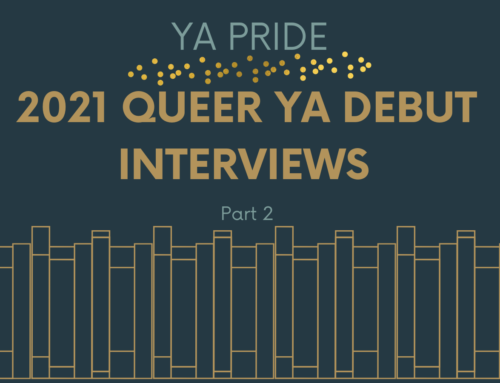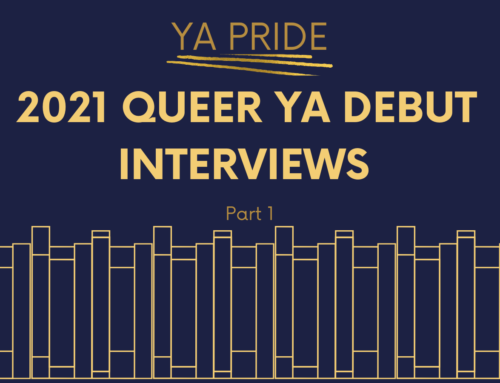Trans Awareness Week Series: Day #1 (Previous Posts: Center Trans Voices: Introduction to Trans Awareness Week Series by Vee S.)
by April Daniels
So, I wrote a book. It’s a good book, and I’m proud of it. But ever since we swung into action marketing it, I’ve been having a lot of Complicated Thoughts about where the YA representation discussion is right now, particularly as it relates to trans people.
Dreadnought is being billed as the story of a girl who transitions, abruptly, publicly, and must deal with the consequences. That’s true as far as it goes but what I discovered while writing it is that mainly it’s a book about child abuse. Danielle doesn’t become a superhero to express her gender; she does it to get out of the house and away from her abusive father. The first time she saves a life is when she flies up to some clouds to find a private place to cry. As much as Dreadnought is about visiting the girls’ aisle in the shoe store for the first time, it’s also a howl of outrage that any child could suffer what she suffers at the hands of her parents.
And that’s just it—this could happen to any child. Often when we talk about trans stories we talk about them like they’re this boutique reality that only a fraction of a percent will ever experience, but that’s not true. Trans stories are human stories. Trans lives are human lives. Our pain is human pain, and our joy is human joy.
The overwhelming reality of being transgender is a feeling of separation, an exclusion from the rhythms and rituals of life. We are asterisks. Exceptions. Afterthoughts to a world that doesn’t want us. When we tell stories with our own voices about our own experiences, it’s easy to fall into a pattern of reaffirming this separation, as if it spoke to something more real and concrete than the very oppression which causes us to need these stories in the first place.
 It’s easy to say that cis people can’t understand what we go through, and to a point that’s right. They can’t and they never will. But what we go through with discovering our gender is only a sliver of what we live. What we have in common with cisgender people is always going to be more substantial than what sets us apart. We still want family and success and security, although maybe we define those things a little differently once we transition. We’re still human, we still have the same human needs and hopes.
It’s easy to say that cis people can’t understand what we go through, and to a point that’s right. They can’t and they never will. But what we go through with discovering our gender is only a sliver of what we live. What we have in common with cisgender people is always going to be more substantial than what sets us apart. We still want family and success and security, although maybe we define those things a little differently once we transition. We’re still human, we still have the same human needs and hopes.
Being trans can be built up to be this profound, unknowable Thing, both sublime and terrifying. It’s not. Mainly it’s just a pain in the ass, just one damn thing after the other, like the rest of life, no scarier and more dangerous than any of life’s other big struggles. But like the rest of life, it can also bring profound joy, and exhilaration that is hard to describe. So being trans isn’t what hurts us; it’s being alone that does the damage.
The best trans representation reflects that. The ideal I strove for in writing Dreadnought was that of all the problems facing Danielle, being trans wouldn’t be one of them. Being trans in a world that wasn’t ready for her is an issue, but the simple fact of her gender isn’t so big a deal. It’s my hope that I connected her fears and her triumphs to problems that anyone could relate to. That and the giant robot fight, which also seemed important to include.
My fear is that discussions of representation could be collapsed into a new microgenre that does us more harm than good. For the longest time, you couldn’t find any books about queer people in the bookstore. Then you could only find them in various euphemistically-labeled sections way in the back of the store. My big fear is that Own Voices and Representation will become the new Alternative Lifestyles shelf. “These are the stories for trans kids. Most of you won’t need them, so don’t bother reading them.”
That would hardly be better than the state of affairs we have today, where trans representation in the media has only barely begun to exist, and then almost always from an othering, diminishing outsider’s perspective. How does a child who doesn’t know she’s trans make her way toward reading a book that’s “only” for trans kids? How does this help a cisgender child realize his trans classmate is still the same person she always was?
But at the same time, if you don’t make a big deal about how the book is about a trans girl, if you don’t highlight the representation part of it, how do people who know they are looking for a book about a trans girl know to find it? Either way you go, there’s an argument to be made that you’re doing it wrong.
Eventually I came to the conclusion that I don’t write books for trans kids. I write books to trans kids. An open letter, one that speaks of love and power, and does so in language that is universal. I do it this way in part because I hope cis kids can pick up the book and see something in it that shows that we’re still basically the same, them and us. Then maybe we can hopefully get rid of this exile that so many of us are forced to choose as the cost of living as ourselves. I’m still not sure that’s the best answer, but it’s the only one I’ve found so far.
—
April Daniels graduated from UC Santa Cruz with a degree in literature. She completed her first manuscript by scribbling a few sentences at a time between calls while working in the customer support department for a well-known video game console.
She has a number of hobbies, most of which are boring and predictable. As nostalgia for the 1990s comes into its full bloom, she has become ever more convinced that she was born two or three years too late and missed all the good stuff the first time around.
Her book DREADNOUGHT is currently available for pre-order.





[…] Fox Became by Fox Benwell, Interview: Alex Gino, The Room Where it Happens by Parrish Turner, Trans Stories Are Human Stories by April Daniels, Center Trans Voices: Introduction to Trans Awareness Week Series by Vee […]